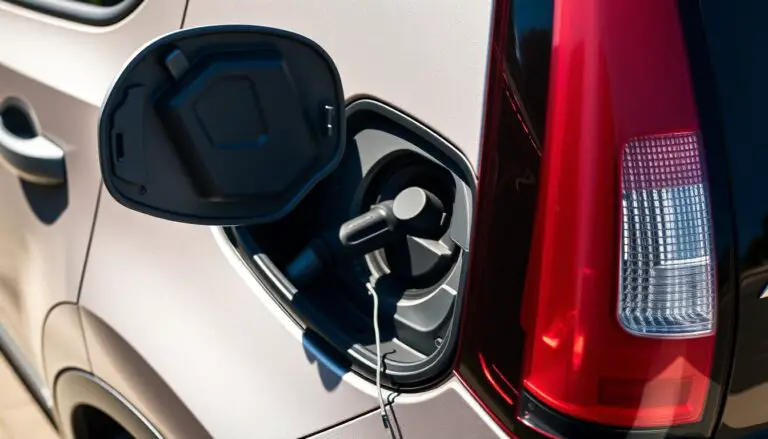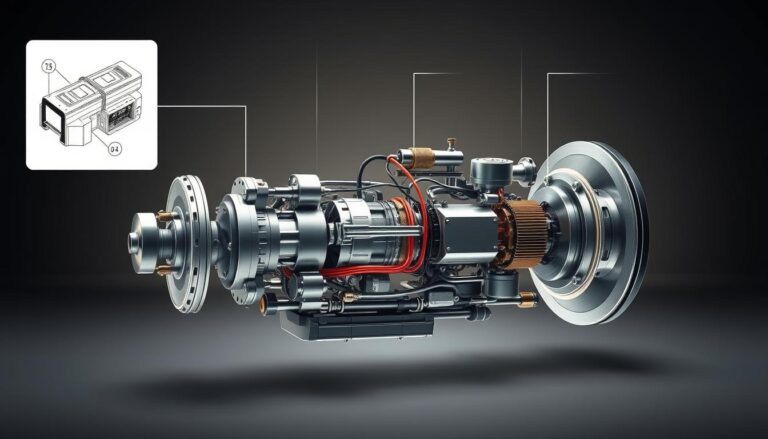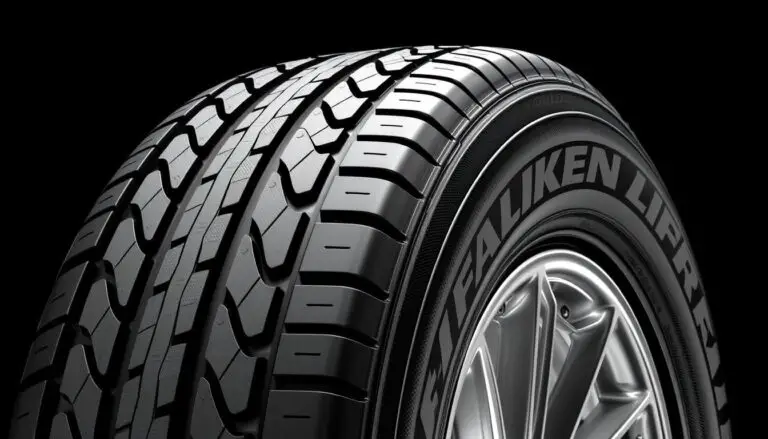Low tire pressure can cause trailer sway due to decreased stability and handling. Proper tire inflation reduces this risk.
Trailer sway is a common issue that can be dangerous if not addressed. One potential factor contributing to trailer sway is low tire pressure. When trailer tires are not properly inflated, it can lead to decreased stability and control. This can result in the trailer swaying side to side, making it difficult to tow safely.
By ensuring that your tires are correctly inflated, you can minimize the risk of trailer sway and improve overall safety while on the road. We will explore the connection between low tire pressure and trailer sway, as well as provide tips for preventing this issue.
The Importance Of Proper Tire Pressure
Proper tire pressure is crucial to prevent trailer sway. Low tire pressure can lead to instability, resulting in dangerous swaying motions while towing. Ensure optimal tire pressure for a safe and secure towing experience.
Proper tire pressure is crucial for trailer stability and towing performance. Low tire pressure can lead to increased sway and reduced control, especially when towing a trailer. It affects the way the trailer responds to road conditions and can lead to dangerous situations. Keeping the tires properly inflated helps maintain stability and control while towing. Regularly checking and adjusting tire pressure is essential for safe and efficient towing. Low tire pressure can compromise the overall performance of the trailer, impacting handling and increasing the risk of accidents.Understanding Trailer Sway
Low tire pressure can indeed cause trailer sway, as it affects the stability and control of your trailer. Understanding how tire pressure impacts trailer performance is crucial for safe towing.
| Causes of Trailer Sway: | Uneven tire pressure greatly contributes to trailer sway. Weight distribution plays a crucial role in maintaining stability. Crosswinds and sudden maneuvers can lead to trailer sway. |
| Dangers of Trailer Sway: | Trailer sway can result in loss of control. It poses a serious safety risk on the road. Increased likelihood of accidents and rollovers due to instability. |
Effects Of Low Tire Pressure On Trailer Sway
Low tire pressure can have a significant impact on trailer sway, increasing the risk of loss of control and handling. When tire pressure is low, it affects the stability and movement of the trailer, making it more prone to sway and instability on the road.
The increased risk of sway is a result of the reduced load-bearing capacity of the tires. Low pressure causes the tires to flex excessively, leading to overheating and potential blowouts.
In addition to compromising safety, low tire pressure also affects fuel efficiency and tire lifespan. Underinflated tires create more rolling resistance, requiring more energy to move the trailer forward and resulting in higher fuel consumption. The additional stress on the tires can also cause them to wear out faster, requiring more frequent replacements.
To ensure safe and smooth towing, it is crucial to regularly check and maintain the proper tire pressure for your trailer. Adequate pressure not only reduces the risk of sway but also improves overall trailer performance and longevity.
Tips For Maintaining Optimal Tire Pressure
Regular pressure checks are crucial for maintaining optimal tire pressure. Improperly inflated tires can contribute to trailer sway, compromising your safety on the road. To prevent this, follow proper inflation guidelines recommended by your trailer manufacturer or tire manufacturer. Check your tire pressure at least once a month using a tire pressure gauge. Keep in mind that tire pressures can change with temperature variations, so it’s important to check before long trips and after extreme temperature changes.
Proper inflation guidelines will vary depending on the type and size of your trailer tires. The recommended pressure is usually indicated on the sidewall of the tire or in the owner’s manual. Be cautious not to overinflate or underinflate your tires as both can affect trailer stability. Underinflated tires can generate excessive heat, leading to tire failure, while overinflated tires can cause a harsher ride, decreased traction, and uneven wear.
| Tire Type | Recommended Pressure Range |
|---|---|
| Radial Tires | 80-90 PSI |
| Bias-Ply Tires | 50-55 PSI |
| Trailer-Specific Tires | 65-75 PSI |
By regularly monitoring and maintaining proper tire pressure, you can minimize the risk of trailer sway and ensure a safer and more comfortable towing experience.
Other Factors Contributing To Trailer Sway
Trailer sway can be influenced by multiple factors besides low tire pressure, such as improper weight distribution, wind gusts, and abrupt maneuvers. Ensuring proper trailer loading and sway control systems can help minimize the risk of trailer sway during towing.
| Load Distribution | Suspension and Alignment |
| Properly distributing weight on a trailer ensures stability during travels. | Regular maintenance of suspension and alignment can prevent trailer sway. |
Safety Precautions And Best Practices
Low tire pressure can lead to trailer sway, affecting stability and control. To prevent this, it’s essential to regularly check and maintain tire pressure within the recommended range. Additionally, ensuring proper weight distribution and alignment can further minimize the risk of trailer sway, thereby enhancing overall safety.
| Weight Distribution: Ensure weight is evenly distributed to prevent trailer sway. |
| Avoid Sudden Maneuvers: Make gradual movements to maintain stability while towing. |
Frequently Asked Questions For Will Low Tire Pressure Cause Trailer Sway
Can Low Tire Pressure Cause Sway?
Low tire pressure can cause sway by reducing stability and control of the vehicle. This can lead to increased body roll and difficulty in steering, especially during turns or sudden movements. Maintaining proper tire pressure is crucial for safe and stable driving.
Why Is My Trailer Swaying So Much?
Your trailer may sway due to improper loading, tire pressure, or hitch setup. Check these factors for balance and stability.
How Do I Stop My Trailer From Swaying While Driving?
To prevent trailer swaying while driving, follow these tips: 1. Check your tire pressure regularly. 2. Ensure the trailer’s weight distribution is balanced. 3. Use a weight distribution hitch or sway control device. 4. Adjust your driving speed and be cautious of windy conditions.
5. Consider installing trailer anti-sway bars for added stability. By following these guidelines, you can reduce the likelihood of your trailer swaying while on the road.
Should I Increase Tire Pressure When Towing A Trailer?
Yes, it is recommended to increase tire pressure when towing a trailer. This helps distribute the weight evenly and improves stability, reducing the risk of blowouts or accidents. Always refer to the manufacturer’s guidelines for the recommended tire pressure when towing.
Will Low Tire Pressure Cause Trailer Sway?
When the tire pressure is low, it can affect stability and increase the risk of trailer sway.
Conclusion
Maintaining proper tire pressure is crucial for preventing trailer sway. Be proactive and check tire pressure regularly. By ensuring tires are adequately inflated, you can enhance safety and stability while towing. Don’t overlook this simple yet effective step in preventing potential trailer sway issues.
Stay safe on the road!


